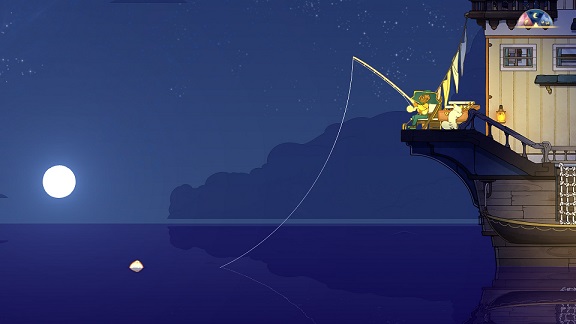
[Note: this is the third in a four letter series with Dylan Holmes
The first is here: https://joannatovaprice.com/wp/index.php/2021/06/25/spiritfarer-pc-game-open-letter-series-1/
Dylan’s reply is here: http://www.augmented-vision.net/2021/06/25/games-club-spiritfarer-letter-2/]
Hi Dylan,
It’s interesting what you say about the (lack of) critiques – I didn’t know much coming into this other than that Spiritfarer was generally liked and that it was a gentle game about dying. But I quickly found the narrative to be nearly nonexistent, a byproduct of the mechanics which were dumbed down on purpose. Now if they hadn’t been, I probably wouldn’t have been able to play it at all. I know I said earlier that I thought the game should either be better written or more mechanically normal (a platformer for people who like platformers) and that I suspected it would be easier to make a good platformer that has some reflection on death than a well written game about death with some simple platformer mechanics. To put it even more succinctly, the game doesn’t work for me as a narrative one, and there are two main reasons why.
The first is that the writing is spotty — some of it is good, some of it is moving, and most of it ranged from okay to not so great. There is nothing that makes up for bad writing in a narrative game, even if it was the most visually stunning game to ever exist, it would still be tough to sit through. This was intended to be a narrative game and doesn’t have another basis on which to think about it really — it obviously shouldn’t be measured as a platformer. That said, I feel like if you made an exceptionally good platformer about death and took out most of the platforming, this is exactly what you would have left. My dad used to say that he wished scifi tv shows didn’t use camaraderie as a set up for an emergency interruption, he wanted whole shows of spaceship crews just hanging out with each other. But if those tv shows actually did that (rather than writing new shows), they would suddenly seem extremely flat, like spiritfarer does for me — its missing at least half of itself.
The second reason is that the game isn’t really about death, it’s about regret, but it doesn’t know that. When the characters of this game talk about death, and being ready for death, they talk about all the things they meant to do or be, that they didn’t accomplish or didn’t have time for. But death is more than just a finish line on your endeavors, it’s the end of consciousness as we know it, without any hard evidence to suggest that there is something afterward. What it means to deal with death is not just letting go of your life’s work, and it isn’t just about letting go of the physical act of living, it is about ceasing to be. This game doesn’t really know what it means to consider the gravity of death and death’s inevitability. That suggests to me that the writers are either literally young or young-in-experience.
But the game does offer a reflection on what it means both to outlive someone else and to let go of an identity or idea of self. This game is strongest when the answers aren’t satisfying, which happens most often at the end of each character’s time with the player, when they’re getting ready to cross over and thinking back. Most of the time, their conclusions are not definitive, they’re uncertain. The only character who speaks with moral clarity in the game is Stanley, and his is the moral clarity of a child, very recognizable and a rare example of good writing in Spiritfarer. I also love the sound design in the game, even the repeat sound bites like Albert’s laugh. As I said earlier, I especially love all the sounds associated with the snake, who I believe is named Summer.
The premise for this game is really strong, but the narrative is lacking because the character development is lacking. The character development is lacking — in my opinion — because as it stands, this is a platformer with the platforming removed, and not a narrative game, not really. That’s why the minigames don’t connect to the narrative core; there is no narrative core, there’s just a great premise. In Stardew Valley, the narrative core is really strong; it isn’t just about the character’s stories and the relationship building, it’s also about this idea that you were working in a cubicle and you gave it all up for a plot of land. It’s about how you contribute to the town and how the characters respond to your contribution. The narrative is tied in directly to the management; the way you manage your resources affects the whole community and even many of the mods reflect that theme of connecting your own management with the larger story of Stardew Valley (the community). But not many people would call Stardew Valley a narrative game, they’d call it what you do — “a fleshing of the world.” But of course it is narrative elements that flesh the world, and the mechanics of the game give the player the opportunity to find those narrative elements in a way that feels mostly organic.
I wish I had better things to say about Spiritfarer, but ultimately it didn’t live up to my expectations. I’m curious to know if there are any games you’ve ever played that have said something interesting about death, because exploring death philosophically in gaming remains a very intriguing premise.
-Joanna
[Read Dylan’s final reply here: http://www.augmented-vision.net/2021/06/25/game-club-spiritfarer-letter-4/]
